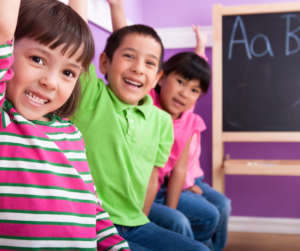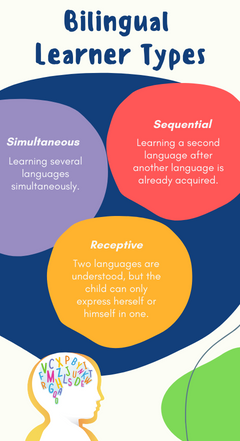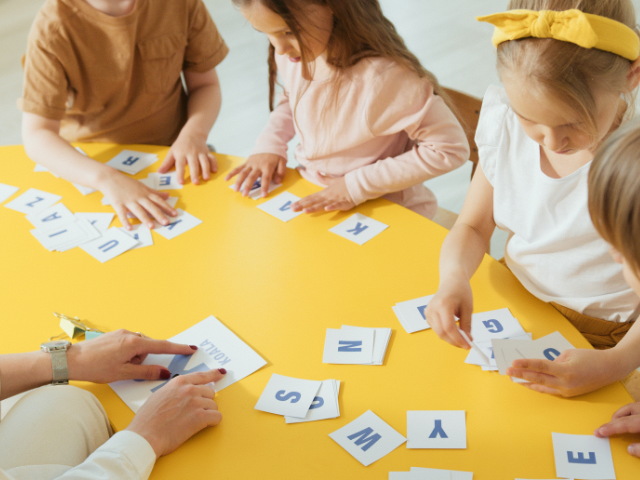
Definitions of Bilingualism
Monolingualism: Monolingualism or Monoglottism as it is also called, is the ability to speak and write in one specific language. That was easy enough, right?
So, what is bilingualism then? This is when it gets a little complicated! The Cambridge Dictionary describes bilingualism as “the fact of being able to use two languages equally well.” Would you agree with this statement? Do you have to be able to speak two languages equally well to be able to call yourself bilingual? Interestingly, research has shown that most bilingual people often have one dominant language. The Oxford dictionary, on the other hand, describes bilingualism as “fluency in or use of two languages”. A specific level of proficiency isn’t even mentioned here.
To some people being bilingual means that you can speak two languages like a native. Others think that some form of fluency in two languages, written, spoken or both, is required. So, perhaps bilingualism is the ability to use two languages, no matter what the language ability levels are? Maybe some form of bilingualism is already achieved when the person understands utterances in a second language. Here are some more definitions of bilingualism:
- Bilingualism is a “native-like control of two languages.” Leonard Bloomfield, 1933.
- “A bilingual person is someone who speaks two languages.” Linguistic Society of America.
- A bilingual person is “someone who can function in both languages in conversational interaction.” L Wei, 2020.
As you can see, bilingualism itself can’t be easily defined. Everybody has a different understanding of the term and what it involves.
Bilingual Learner Types:
Simultaneous Bilingualism
Learning several languages simultaneously.
Sequential Bilingualism
Learning a second language after another language is already acquired.
Bilingual Learner Types for Bilingual Children:
Simultaneous
Children grow up with both languages, perhaps because their parents speak two different languages.
Receptive
Two languages are understood, but the child can only express herself or himself in one.
Sequential
One language is learned after a first language has been acquired.
Multilingualism
Multilingualism can be defined as the knowledge of several languages. Similar to what we discussed in the above bilingualism section, multilingualism can’t be easily defined. Are you only allowed to call yourself a multilingual person when you speak 3 or more languages perfectly well? Or is a limited proficiency in the third language enough to fall into the multilingualism category? Again, there is no definite answer
Language Acquisition in Children
Another important term for young bilinguals in-the-making: Language Acquisition! So, what does ‘Language acquisition’ mean and why is it important? Well, language acquisition in young children is hugely influenced by meaningful interactions as well as natural communication. Language acquisition often happens in young children, as they are not faced when then don’t get everything right. Language is repeated and imitated. You can observe ‘language acquisition interactions’ when little kids repeat songs, rhymes, and sounds. They simply love it! In simple terms: young children often acquire language playfully and naturally. Older kids, on the other hand, might be more inhibited as they worry about sounding silly or not understanding fully. Repetition in language learning is key; children learn the structure of a language through repeating sentences and words. Especially young children acquire language naturally, that means that they often don’t have to consciously learn the language. They often repeat and imitate language without an annoying voice in their head telling them that they sound silly! They simply go for it!


How do you become bilingual or multilingual?
You can become bilingual when you are little or when you are an adult. Some children grow up in families in which two parents have different language backgrounds. Or perhaps, parents move to another country and their children need to learn another language…. The options for why and how someone becomes bilingual are endless. For helpful tips, tricks and activities for young bilingual learners, you should check out our Free Resources section.
Positive Effects of Bilingualism in Children
Raising a bilingual child comes with many benefits. Children who are bilingual often can pick up new languages more quickly and easily than monolingual children. They also tend to score higher on tests of cognitive skills, such as problem solving and creative thinking.
Other benefits of Bilingualism:
- Culture: Learning about another culture, open-mindedness, more adaptable.
- Family: Being able to communicate with other family members.
And these are just some of the many benefits of bilingualism. In our Blog section, you will be able to read more and in greater detail about the positive effects of bilingualism.
Bilingualism and multilingualism are amazing superpowers!